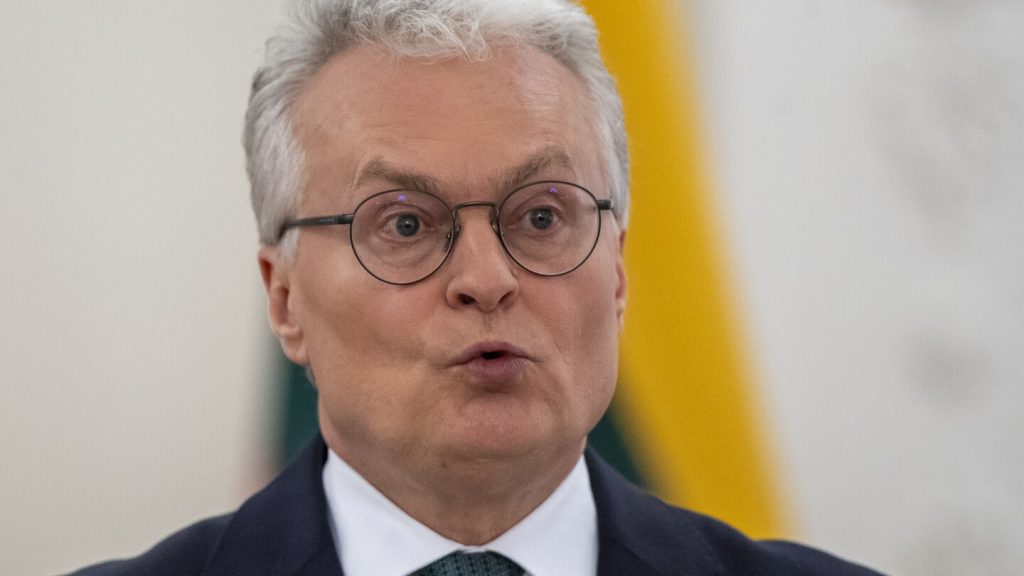Lithuania is gearing up for a presidential election this Sunday, with the incumbent Gitanas Nausėda being favored to win another five-year term. However, there are eight candidates in total, making it unlikely for any candidate to secure the required 50% of votes needed for an outright victory. In the event of a runoff, it would be held two weeks later on May 26. The president in Lithuania holds key responsibilities in overseeing foreign and security policy, as well as acting as the supreme commander of the armed forces, given the country’s strategic location along NATO’s eastern flank.
There is growing concern in Lithuania, as well as neighboring Latvia and Estonia, about Russia’s increased momentum in Ukraine. The Baltic states, including Lithuania, have all declared independence following the collapse of the Soviet Union and have pursued a staunchly pro-Western course by joining the EU and NATO. Nausėda, a moderate conservative, has been a vocal supporter of Ukraine, aligning with the general political sentiment in Lithuania. Under his leadership, Lithuania has provided refuge to many fleeing repression in neighboring countries like Belarus and Russia.
Nausėda, a former banker who entered politics with a successful presidential run in 2019, is viewed as a safe choice for voters across different ideological spectrums, according to analysts. His main opponents in the election include populist lawyer Ignas Vėgėlė and Prime Minister Ingrida Šimonytė. While some voters see Nausėda as a safer option due to his moderate and experienced background, others like teacher Asta Valanciene prefer Šimonytė for her longer tenure in politics. Vėgėlė has gained popularity during the pandemic by criticizing the government’s COVID-19 policies, and a second-place finish for him could shake up national politics ahead of the parliamentary election this fall.
Both Nausėda and Šimonytė advocate for increased military spending and support for Ukraine, unlike some other candidates who believe aiding Ukraine could invite Russian aggression. Vėgėlė’s stance on this issue has been more ambiguous, and he has been critical of calls to raise defense spending to 4% of GDP, which is double NATO’s target. The election also includes a referendum on whether the constitution should be amended to allow dual citizenship for Lithuanians living abroad. This issue holds significance due to the declining population in Lithuania and the challenges faced by citizens with dual nationalities. A previous attempt to change the constitution in 2019 failed due to low voter turnout, highlighting the importance of civic engagement in shaping the country’s future.
Overall, the presidential election in Lithuania comes at a crucial juncture, with the ongoing conflict in Ukraine and broader tensions between Russia and the West influencing the country’s political landscape. The outcome of the election will not only impact domestic policies and foreign relations but also contribute to shaping Lithuania’s role within the broader European context. As voters head to the polls on Sunday, their choices will not only determine the leadership of the country for the next five years but also reflect the prevailing sentiments and priorities of the Lithuanian population at a critical time in the region.


